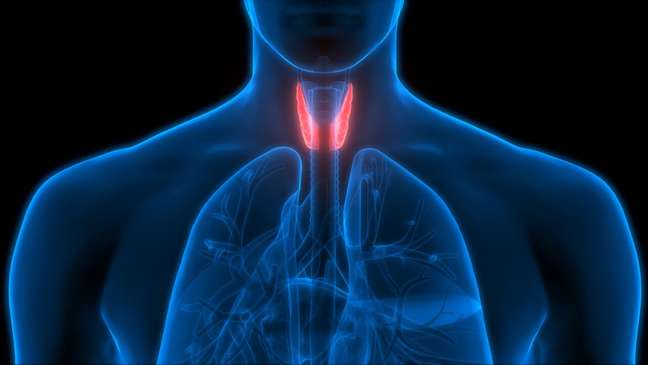Find out how to identify the condition and what it can be causing in your body

To better understand what are the Symptoms of Hashimoto’s syndrome, it is first necessary to know the origin of the condition. And, according to Dr. Paula da Rocha Jaskulski, a physician specializing in endocrinology and metabolism at Campinas State University (UNICAMP), the problem is directly related to metabolism. In the end, is a chronic autoimmune inflammation of the thyroid gland.
The gland is responsible for the production of the thyroid hormones, T3 and T4, which are responsible for metabolism. When hypothyroidism is present, what happens is its reduction.
Symptoms of Hashimoto’s syndrome
“From this, the patient begins to feel: tiredness, drowsiness, menstrual changes, decreased libido, difficulty concentrating, constipation, dry skin, heartbeats can slow down and there is also hair loss and fluid retention, making to the patient about 3 kg,” he explains.
After experiencing the symptoms, laboratory tests are carried out, such as the dosage of TSH which is produced by our pituitary gland and is the “master” of the thyroid. “When it reduces the production of T3 and T4, TSH increases in an attempt to compensate for this reduction in hormone production. Initially, this can maintain some balance. However, over time, it is not sufficient and the patient develops a reduction in the hormone T3 and T4, which is called full-blown hypothyroidism.”
Diagnosis and treatment
Although it is a disease that has no cure, treatment is usually effective in controlling symptoms. “We carry out the hormone replacement with levothyroxine, varying the dose according to the case. Many times during the treatment adjustments will be necessary. There are many speculations about the factors that could decrease the attack on the thyroid cells, such as selenium and vitamin D, but the studies are still ongoing. could not prove this benefit,” says the edcrinologist.
To live with Hashimoto Syndrome it is necessary to consume some foods in moderation, such as cauliflower, soy, turnips are rich in isoflavones and thiocyanate, which can slightly reduce intestinal iodine absorption and could lead to a more rapid progression of ‘hypothyroidism.
“Furthermore, the patient needs to lead a healthy life, i.e. create a routine with physical activity, balanced diet, eliminate excess alcohol, smoke and control stress to protect themselves and prevent the disease from progressing”, concludes Dr. Yaskulsky.
+The best content in your email for free. Choose your favorite Terra newsletter. Click here!
Source: Terra
Ben Stock is a lifestyle journalist and author at Gossipify. He writes about topics such as health, wellness, travel, food and home decor. He provides practical advice and inspiration to improve well-being, keeps readers up to date with latest lifestyle news and trends, known for his engaging writing style, in-depth analysis and unique perspectives.








